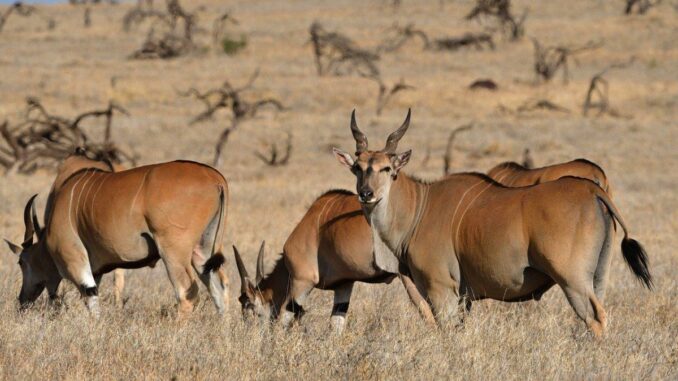
Namibia is experiencing its worst drought in a century and has declared a state of emergency. To address the crisis, the country has launched a national plan that includes a controversial measure: culling dozens of animals, including hippos and buffalo, in various national parks.
The Environment Ministry announced on August 27 that Namibia plans to cull 723 wild animals, including 83 elephants, to distribute their meat to those struggling with food shortages due to the severe drought affecting southern Africa. The animals targeted include hippos, buffalo, impala, blue wildebeest, zebra, and elephants. The culling is also intended to ease pressure on grazing and water resources within the parks.
So far, 157 animals have been culled by professional hunters and government-contracted companies, resulting in over 56,800 kilograms of meat. The Ministry defended the measure as necessary and in line with its mandate to use natural resources for the benefit of Namibian citizens.
With over 200,000 elephants in the region, which spans Zimbabwe, Zambia, Botswana, Angola, and Namibia, it is home to one of the world’s largest elephant populations. However, the decision has faced backlash. The NGO Elephant Human Relation Aid has criticized the plan and launched a petition on Change.org, which has garnered over 2,600 signatures.
The UN estimates that nearly 1.5 million people are facing food insecurity due to the drought, and despite calls for international assistance, Namibia appears to be handling the crisis largely on its own.
